Edible Alchemy
Did you know that fruits ten-fold their nutritional value when fermented? Or that vitamin B1 and B2 are beneficial by-products of pickled vegetables? Or how about the fact that food waste could be easily reduced in every household if we preserved veggies before we let them rot and throw them away? Well, nuttin’ like a couple of healthy ol’ fun facts to sock you in the proverbial stomach, eh!
My unsuspecting introduction to the world of fermentation came in shape of a sourdough bread workshop in winter 2017. As I climbed down a set of wooden steps, the slightly naive and certainly very hungry side of me was doing little past daydreaming of spending the evening snacking on dough, getting covered in flour, and enjoying the wholesome scent of a hot loaf in the oven. For the record, all three of those wishes did end up coming true. What I didn’t expect, however, was that the workshop would do much more than just take my inner child on a wild ride. It really got the grown up in me thinking about my gut.
![]()
My unsuspecting introduction to the world of fermentation came in shape of a sourdough bread workshop in winter 2017. As I climbed down a set of wooden steps, the slightly naive and certainly very hungry side of me was doing little past daydreaming of spending the evening snacking on dough, getting covered in flour, and enjoying the wholesome scent of a hot loaf in the oven. For the record, all three of those wishes did end up coming true. What I didn’t expect, however, was that the workshop would do much more than just take my inner child on a wild ride. It really got the grown up in me thinking about my gut.
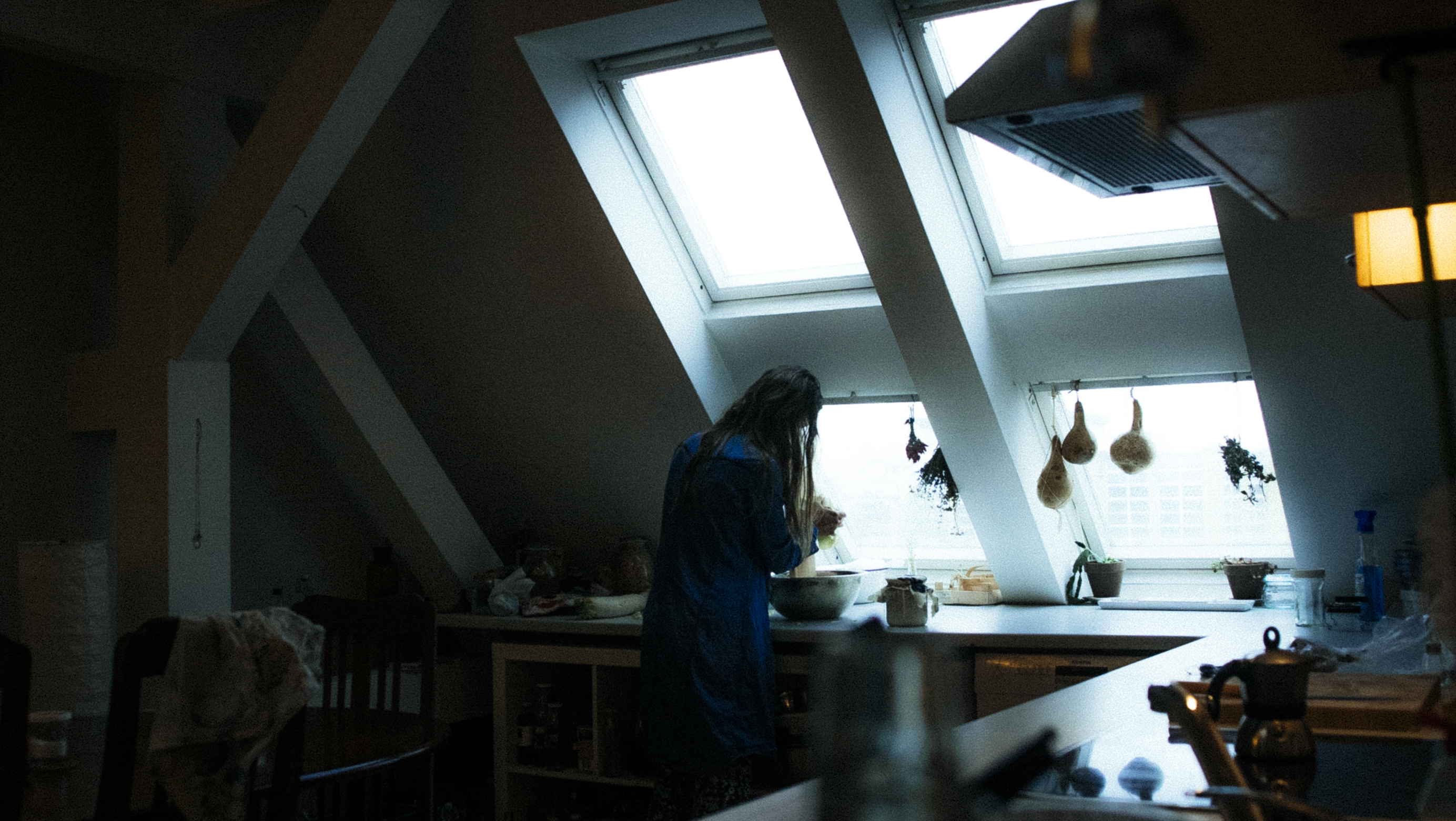
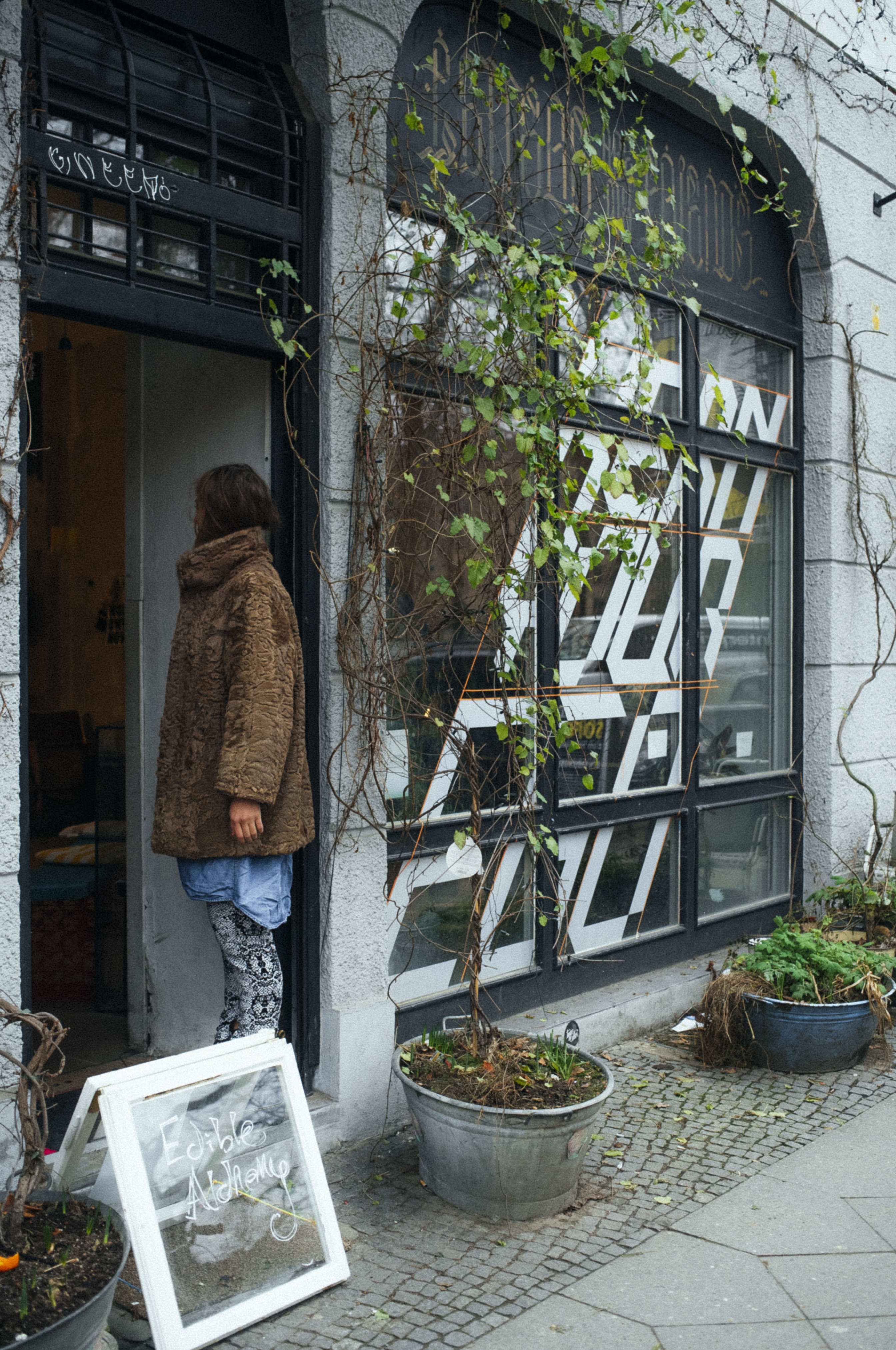
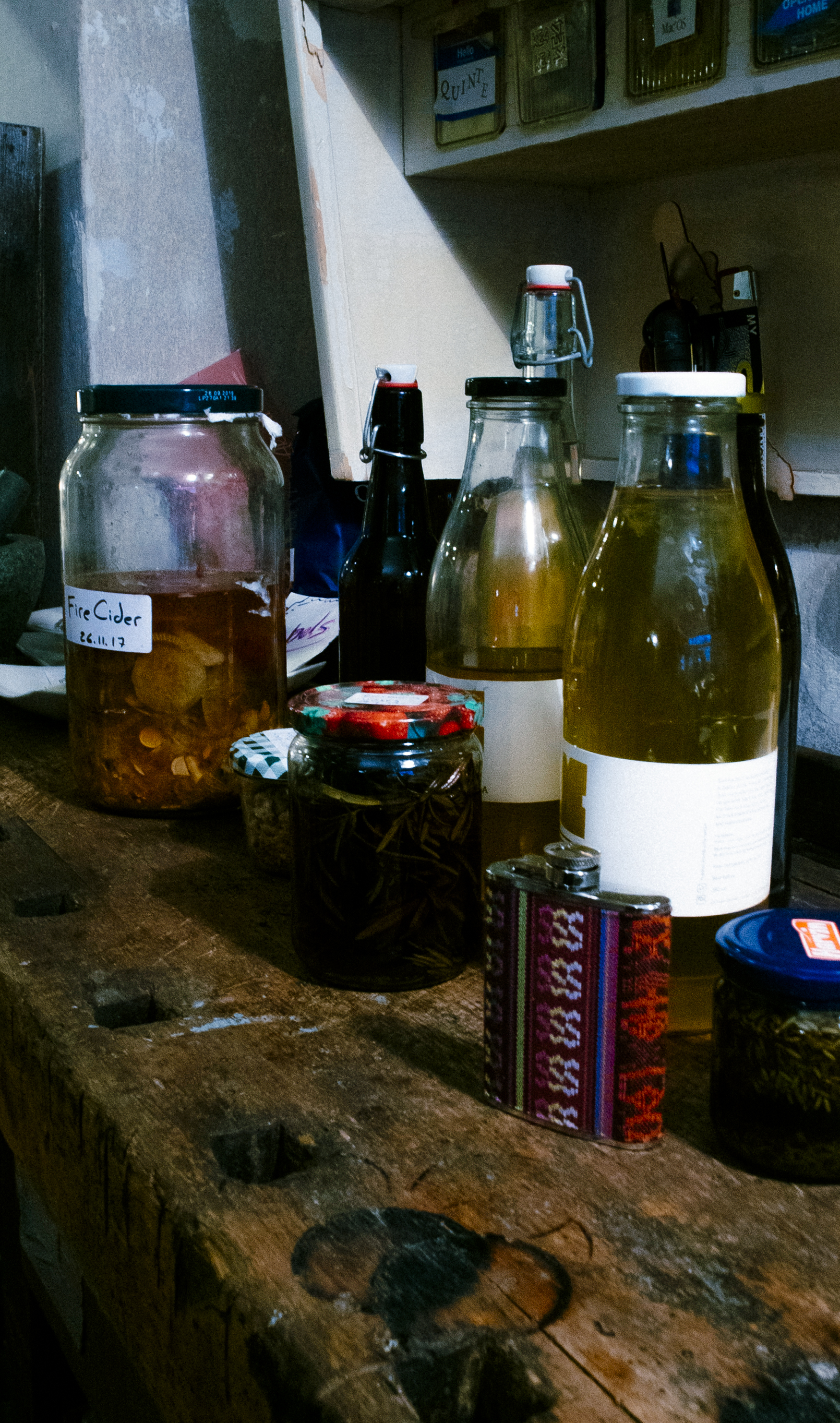
Soul food
As humans, we all rely on water and nutrients for survival. As individuals, we have vastly different dietary needs and palates. Tea lovers and wine guzzlers; chefs and connoisseurs; vegans and paleos; girls and grannies; Tom and Dick, and (though he may not know it yet) even Harry—indeed, Edible Alchemy is for everyone. With one base in Canada and the other in Germany, the project works to bring nutrient-rich knowledge, and probiotic foods and drinks to people on both sides of the Atlantic and beyond.
Hailing from Winnipeg, worldly citizens Natalie and Alexis ended up finding each other back home in 2012—each stopping in for a bit to take a break from globetrotting adventures, each equipped with their own learnings and experiences. Sharing a mutual passion for living foods, the friends decided to try their hand at selling bacteria cultures on Craigslist. In their first couple of weeks, they sold out faster than you can say lactobacillus. It quickly became clear that people were indeed interested in feeding and consuming living foods. They went on to host a workshop, then another, and then another. Fast forward five years and their project has evolved into a thriving business. Today, Natalie and Alexis are facing the mission of a lifetime—to create a shift in contemporary food culture.
The flavor is in the ferment
Through herbal tincture workshops, ginger beer webinars, kefir muffin recipes, macro bacterial film studies, hand-printed magazines, and more, these two, young women are bringing probiotics into kitchens one person and one culture at a time. The root of it all, as Alexis explains, lies in their brainchild’s name,
“Edible—you can eat it. And Alchemy—what the alchemists were trying to do with the wind and the water, Mars and Saturn, turn all these energies into gold. Our idea is that you can change really simple things into valuable things, like grapes to wine, grain to beer, cabbage to sauerkraut. And not only more valuable in the sense of their price, but also in their nutritional value.”
People seek out Edible Alchemy for vastly different reasons. Many already have some sort of diet regimen in place, such as raw, vegan or vegetarian, and are looking for a new ways to attain nutrients. Some are hobbyists, which Alexis defines as the enthusiasts who say, “I want to learn a new skill. I like hot sauce and I want to make the hottest sauce ever!” Others are chefs looking for new knowledge or inspiration to bring into their kitchens. But the majority of people are experiencing health problems and are looking for a solution. “Probiotics are becoming more known and more available. People don’t want to reach for more supplements or pharmaceuticals, because they’re not a longterm solution, they’re a bandaid solution" Alexis elaborates, while casually grating a giant head of cabbage.
But fermented foods aren’t just about solutions, restaurants, or hobbies. She underlines the fact that fermented foods already play an integral part in every country’s food culture. “You have kimchi in Korea, miso in Japan, sauerkraut in Deutschland—30% off all our food has been fermented in some way—bread, chocolate, coffee, beer, wine, yogurt, cheese. They may be industrially produced, and so now they don’t contain any bacterial cultures, but traditionally, they all did at some time in their lifecycle. People can definitely say they don’t like cheese. People can definitely say they don’t like wine or beer. But if you survey someone’s diet daily, very rarely you will find a diet that has zero fermentation in it. People like these flavors because of fermentation.”
But, if so many fermented foods are already an integral part of our daily regimens, where is the problem? The answer lies in the absence of living bacteria in factory-made, fermented foods. Incidentally, this is what got Edible Alchemy brewing in the first place.
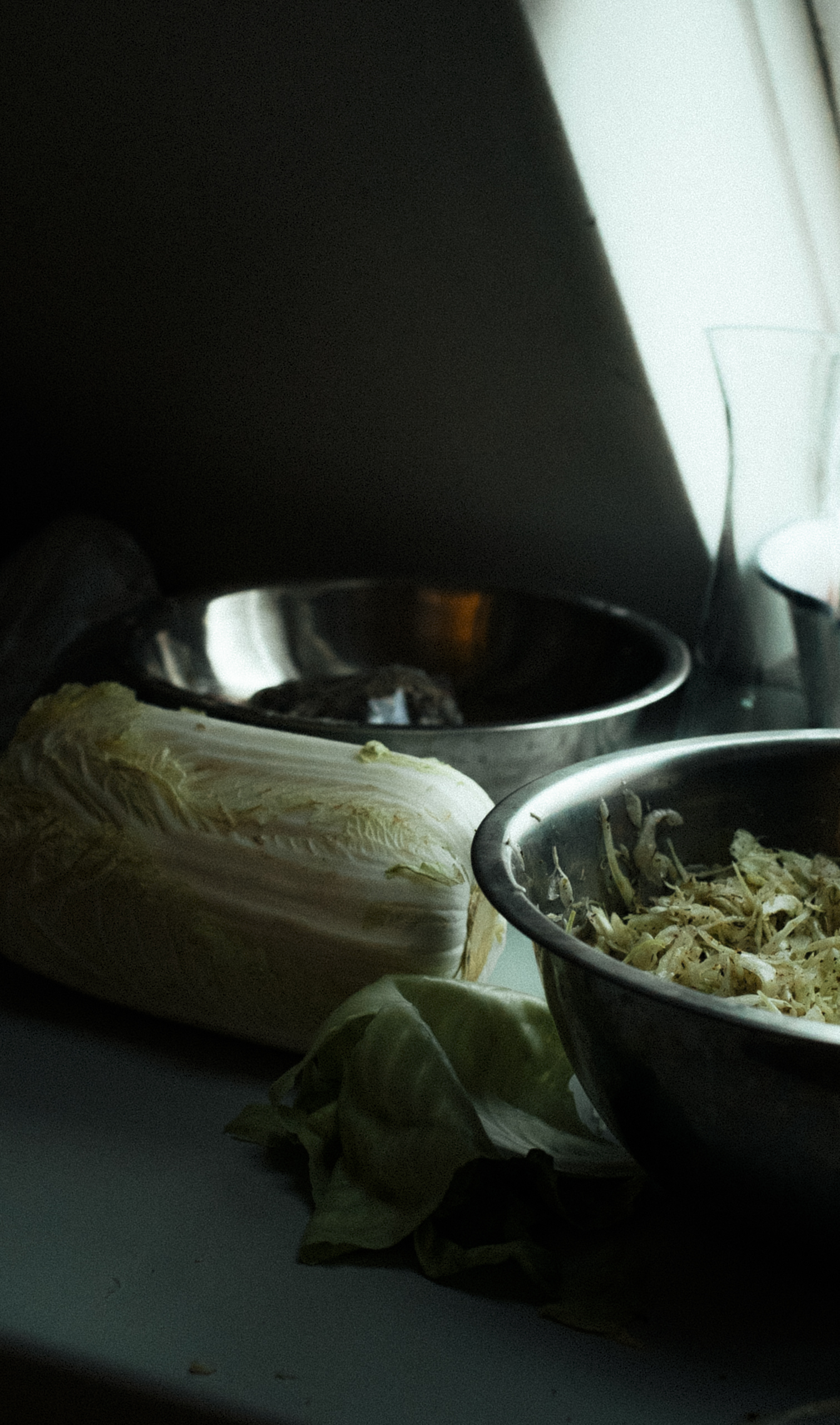
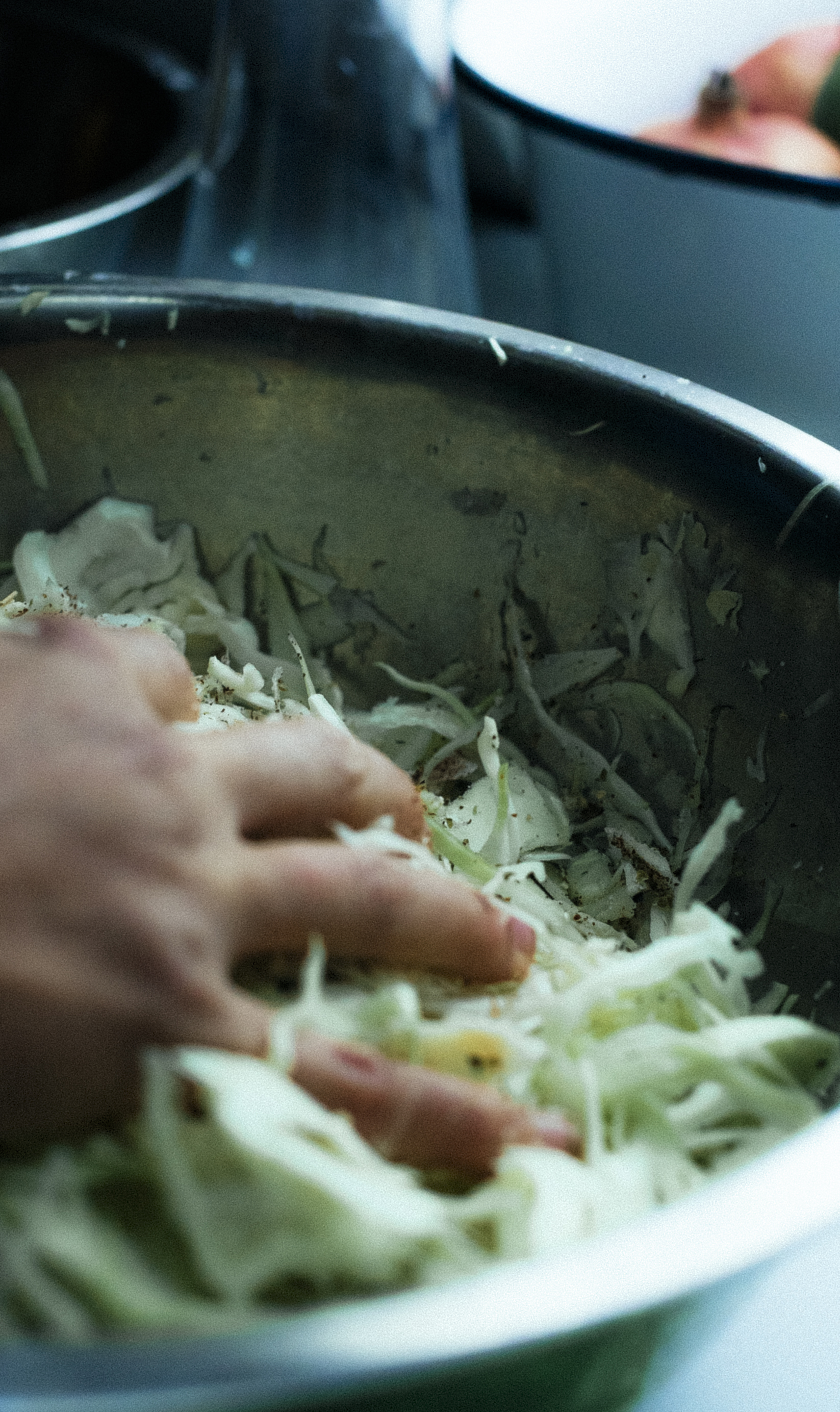
Who doesn’t love a good ol’ sandwich?
Let’s take a closer look at a basic staple: bread. With wild yeast, the bacteria breaks the complex carbohydrates down into simple sugars before we ingest it. Half the work has been done for us, long before we’ve even had to choose whether to top our whole-wheat panini with avocado or mozzarella. Alexis describes this as “A great symbiosis where everybody is working together.” Seems simple enough. But there’s a but.
"Our guts have to do the breaking down instead, in turn, making people inflamed, bloated, or giving them indigestion. Industrial yeast is doing half the job, not the full job.”
The majority of breads that we buy from supermarkets and bakeries contain industrial yeast, not wild yeast. The complex carbohydrates are not being broken down, because industrial yeast is not a living bacteria. Alexis outlines the impact this is having on our health, "Our guts have to do the breaking down instead, in turn, making people inflamed, bloated, or giving them indigestion. Industrial yeast is doing half the job, not the full job.” She also attributes gluten intolerance to this predicament. Essentially, industrial yeast has taken over our shelves and sandwiches, and in turn, it’s making our stomachs sick.
Guten apetit.
It gets a little worse before it gets better. Once we’ve enjoyed our not-so-digestible lunches, we wash our hands with antibacterial soaps, before going on to use an array of other antibacterial products as part of our ‘hygiene’ routines. Some of us unknowingly add fuel to the fire by throwing ourselves a bi-annual prescription party at the antibiotics candy store, just for good measure. Is it really that surprising that our microbiomes are left defenseless and we, as humans, have become much more susceptible to indigestion and disease?
Doubtful.
Guten apetit.
It gets a little worse before it gets better. Once we’ve enjoyed our not-so-digestible lunches, we wash our hands with antibacterial soaps, before going on to use an array of other antibacterial products as part of our ‘hygiene’ routines. Some of us unknowingly add fuel to the fire by throwing ourselves a bi-annual prescription party at the antibiotics candy store, just for good measure. Is it really that surprising that our microbiomes are left defenseless and we, as humans, have become much more susceptible to indigestion and disease?
Doubtful.
Longer life or longer shelf life?
Edible Alchemy is one of the projects out there pioneering for more awareness, stronger microbiomes, and for a better future. “Probiotics are becoming increasingly known, but it’s still not easy to get living food in stores. And that’s where I’m coming from. My ultimate goal, in years to come, is to get living foods on the shelves of markets. If I’m the actor, I’m happy for that. If it’s someone else, I’m still happy for it. But I want people to be able to reach out and buy a living yogurt or sauerkraut, and not have to worry about pasteurized products not doing anything. Either that, or I want to give them the tools to be able to do it themselves.” Alexis is a strong fighter for her cause, and from the passion and sincerity in her voice it was clear to me that she certainly intends on seeing this change through.
If we can tap into this knowledge and find ways (or perhaps even just one way) to increase our intake in probiotic (aka living) foods, be it through bread, yogurt, vegetables or tea, we’re going to quickly find ourselves walking down healthier roads in life, and perhaps even healthier aisles in supermarkets. That way, when we do have to take antibiotics or do have us a couple of slices of dirty grilled cheese toasts, our bodies will have powerful defense systems in place to keep our microbiomes voguing.
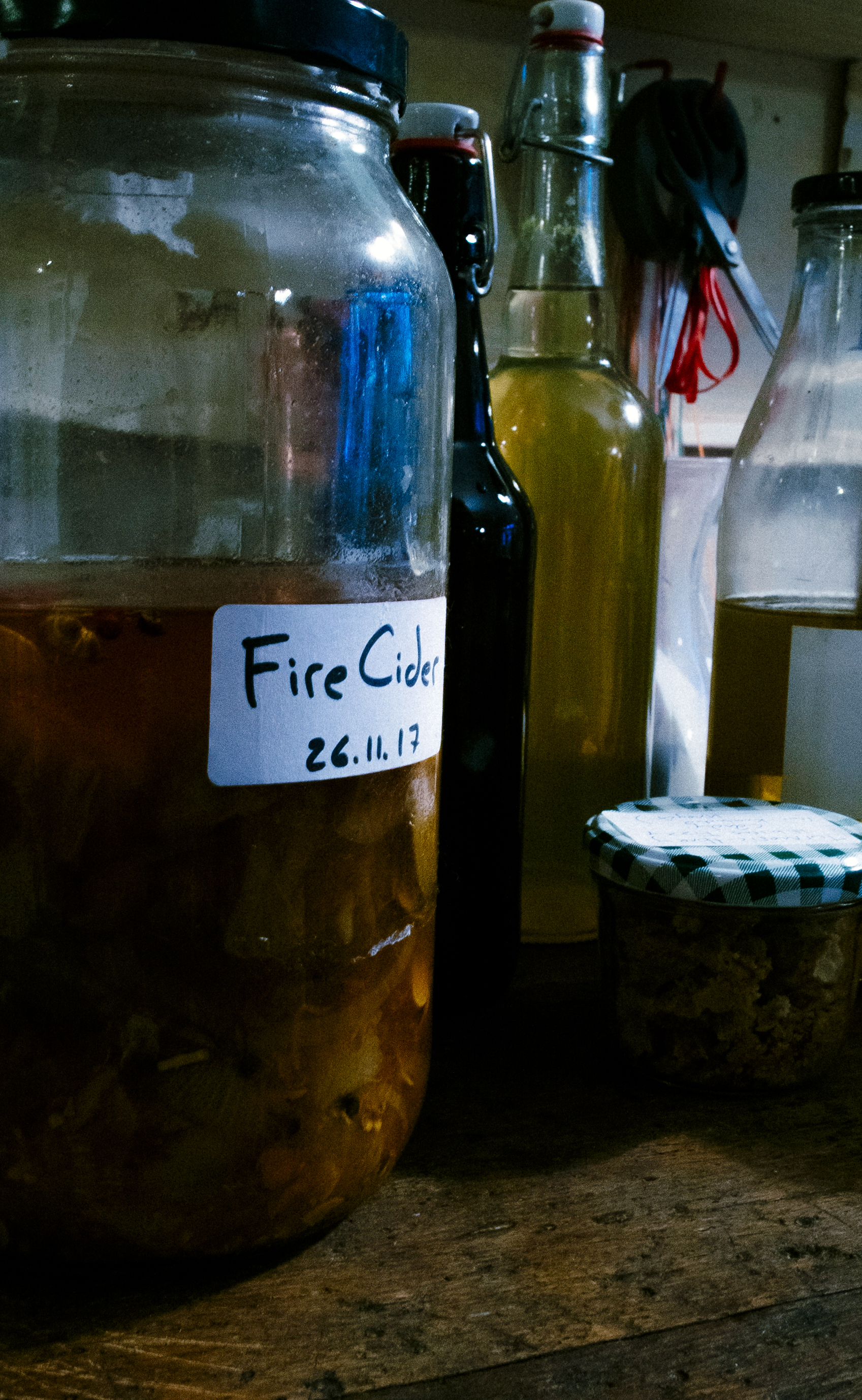
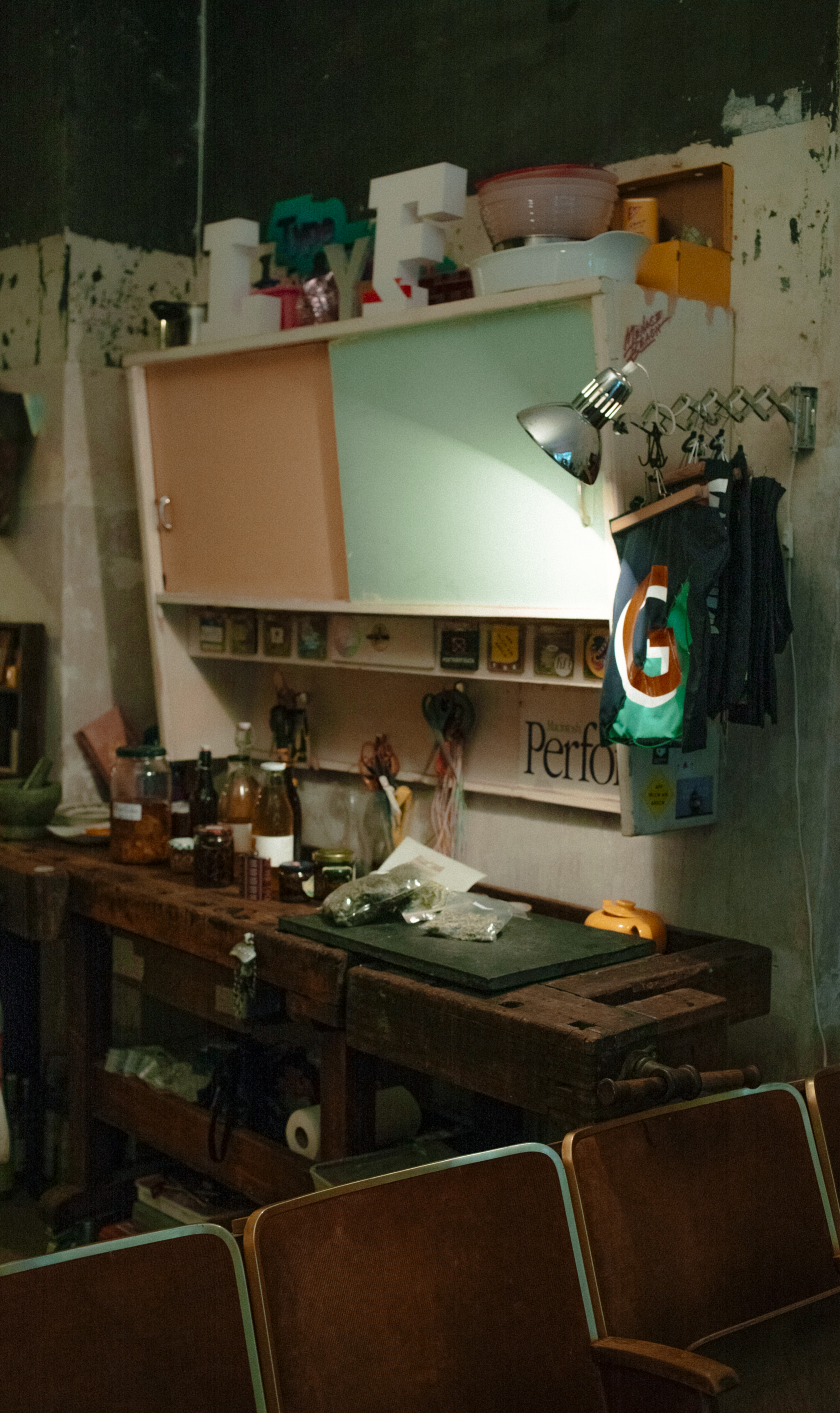
Kombucha Q&A
Bread aside, the bubbly world of fermentation boasts all kinds of magical flavors and experiences.
A cup of tea
Kombucha is made by fermenting sugared tea using a SCOBY (Symbotic Colony of Bacteria and Yeast). Alexis breaks the chemistry behind this process down in simple terms, “You have to think about yeast as a little guy that eats sugar, which in the end, results in carbon dioxide. So the SCOBY eats sugar, which makes bubbles. By doing that, it’s creating an acidic environment, which good bacteria, such as the lactobacillus, love. Vitamin C and Vitamin B also result from this process. But the yeast doesn’t actually survive, it kills itself by eating sugar. So it’s actually a martyr.” Bacterial philanthropy at its best. In case you haven’t yet had the pleasure of being weirded out by one: a kombucha SCOBY looks like a cross between a weird brain and a slimy cuttlefish. It has a strong vinegary aroma, which is why many people choose to infuse it with tisanes, herbs, or berries.
Bliss for the body
Kombucha tea is most commonly consumed as a probiotic, soda-like drink. However, the kombucha SCOBY also has many other uses. According to Alexis, you can cut off a chunk and use it as a face mask. The acidic reaction takes off dead skin molecules and clarifies your skin by pulling out toxins. She noted that this is especially good for anyone suffering from a mix of dry and oily skin, and she even knows some people who use this to treat psoriasis. Alternatively, permitted you don’t mind smelling of vinegar for a day or two, you can also put the fermented drink in your hair to show your follicles a little love.
Growing, growing, global.
Alexis brought her once little SCOBY, Snowflake, to Berlin from Canada in a small jar. In the four years since her arrival in Germany, not only has Snowflake grown into a whopping 60 Lb mass, but she now lives in a giant vessel in Moabit. Alexis has gone on to pass hundreds and hundreds of pieces of Snowflake on to people since. “It’s been to Japan, it’s been shipped to London…she’s everywhere, so watch out. I bet you that 90% of the SCOBYs in Berlin are probably from this funny, little thing" she chuckled.
Mindful moderation
Intrigued? Whether you’re thinking about brewing your own kombucha, or trying a hand at kneading your own sourdough bread, probiotics are still best consumed in moderation. Alexis claims that the more probiotic food you eat, the more good bacteria your stomach will also be able to handle. But even so, live cultures don’t eradicate our need for nutrition from the classic food pyramid. Alexis highlights the importance of keeping your quantities in check, ”There’s a German saying, ‘Die Dosis macht das Gift’ (Engl. the dose makes the poison). In a traditional German meal, you always have sauerkraut on the side. If you go to Korea, you don’t have a whole bowl of kimchi for dinner. It’s the combination of fermented foods with other foods that makes food absorbable and nutritious.”
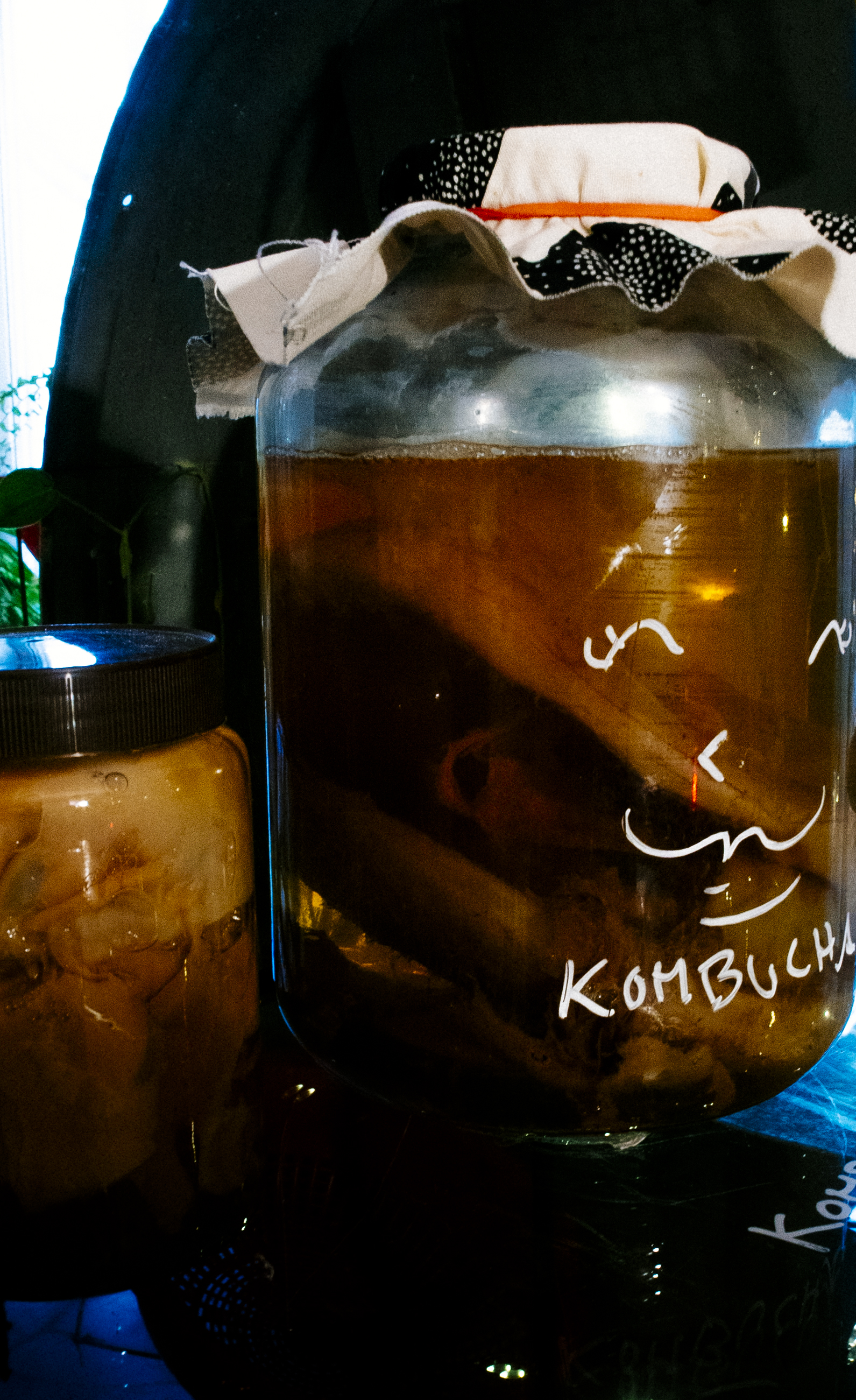

When edibles go alchemy
Aside from trying her hand in hosting webinars for her followers, the ever-busy Alexis is eagerly looking forward to a string of events and projects she has lined up in the weeks and months to come. First up, the Microbial Circus, an edu-taining workshop series featuring experts in the field, is hitting up Berlin, London and Barcelona at the beginning of March 2018. Then, she’ll be turning her workspace at Boppstrasse into a Bacteria Bar on March 15. She plans to shake up a storm by combining insights into the microbial world with a night of tasty, probiotic cocktails and long drinks.
Further down the road, Alexis hopes to get the permits to start her very own kombucha business, Mother Kombucha. Though the ideation process is relatively far a long, there are still quite a few rivers to cross with the authorities before she can put a label on it. "Selling living foods, especially drinks, is a very, hard business. Kombucha gets pressurized, which can mean it can become explosive. As it ferments, it’s constantly changing flavor and customers don’t understand that that’s actually a good thing. Also, I do not want to pasteurize it! That’s totally against the point, and not at all what I want to be doing here. Who would I be to be selling this living-dead drink?” she explains. With some security questions still to be tackled, the need to handle customers in the expectation department, and the drink’s longevity discussion, it’s unlikely Mother Kombucha will hit the shelves before the summer. However, definitely something worth keeping an eye out for in Berlin.
“Also, I do not want to pasteurize it! That’s totally against the point, and not at all what I want to be doing here. Who would I be to be selling this living-dead drink?”
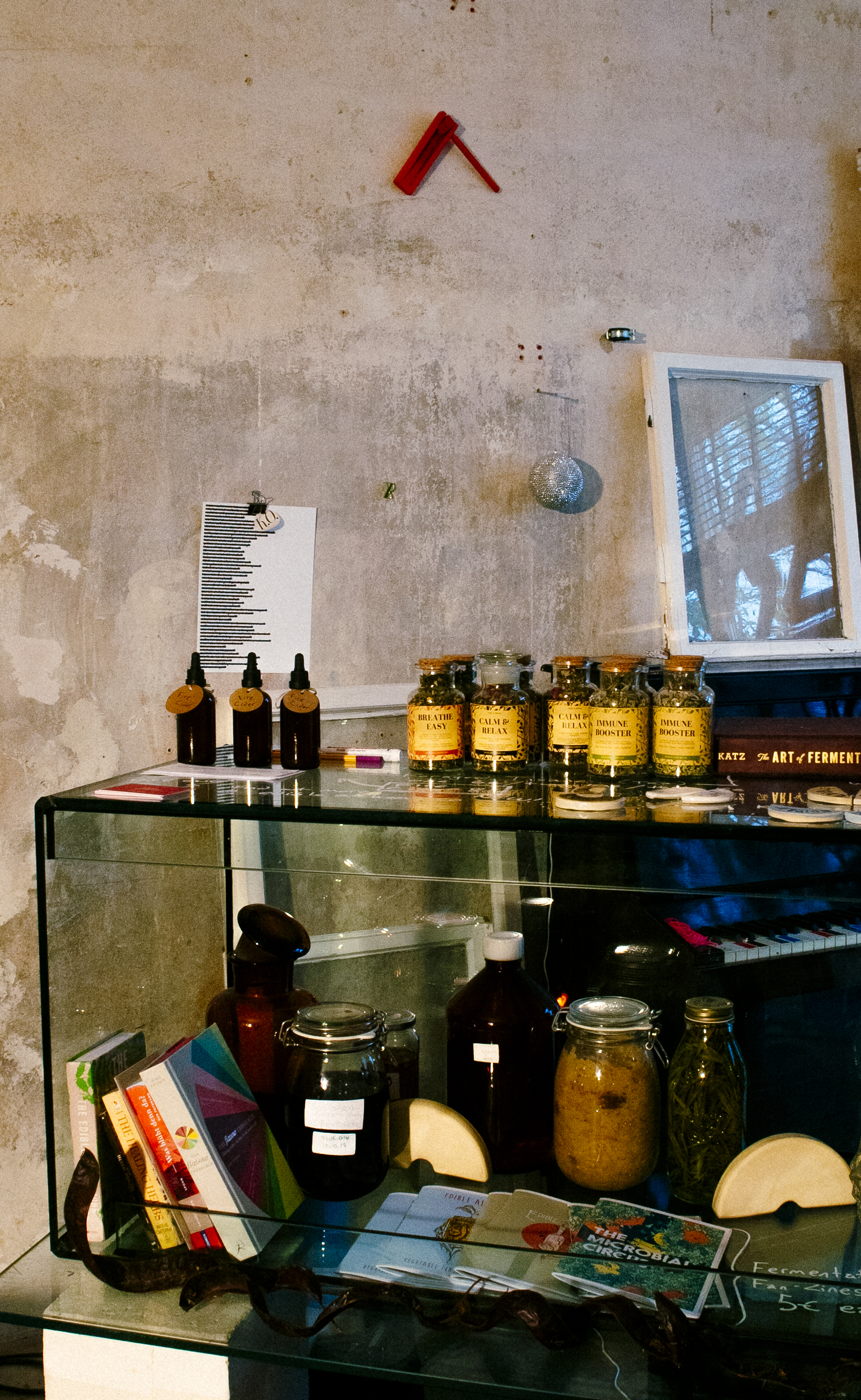
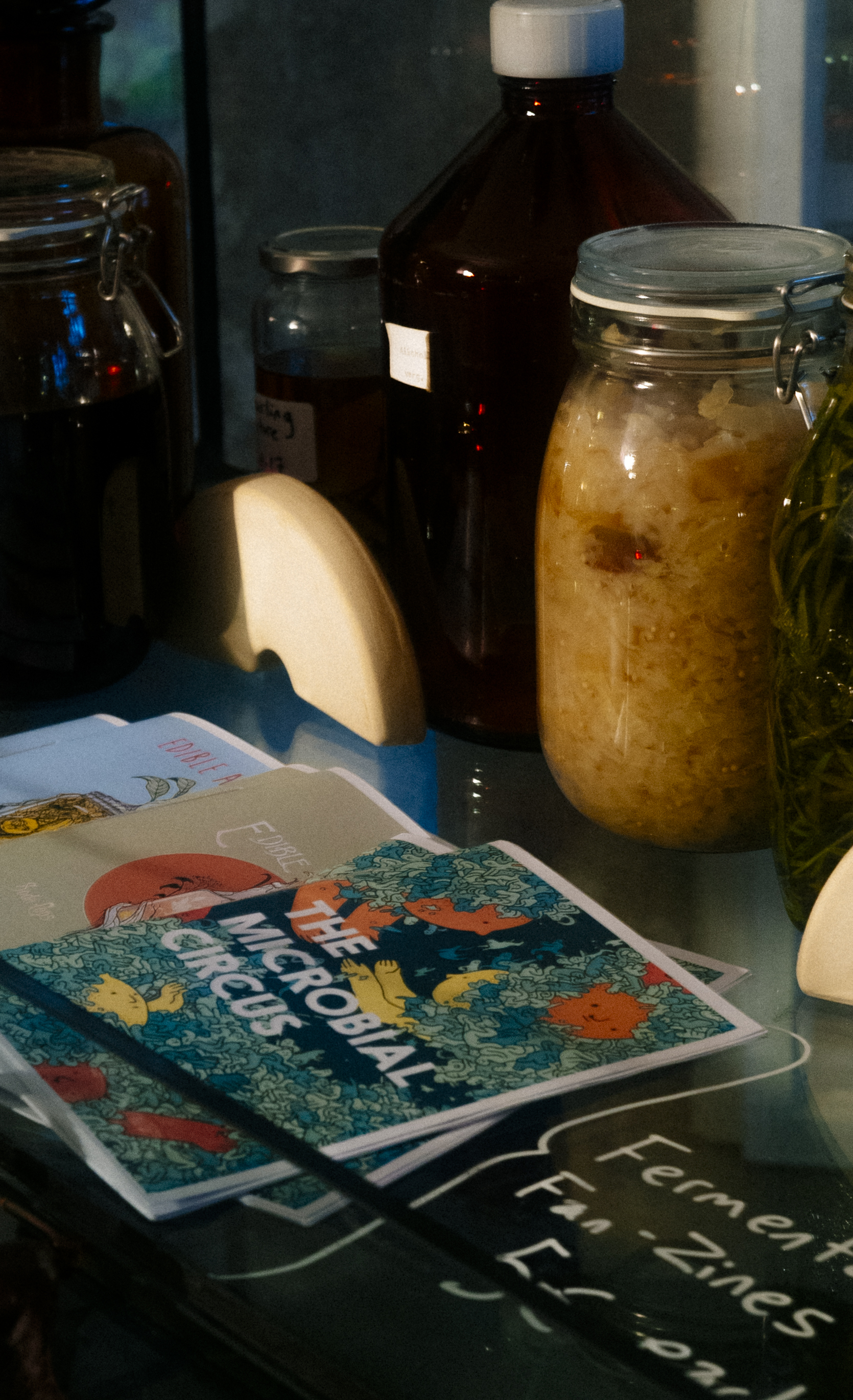
The full circle
Demand determines markets and, as consumers, we have the power to bring about the change we wish to see. Edible Alchemy is doing precisely that by selling cultures and sharing knowledge with the world. I am doing this by baking a giant sourdough bread every week, feeding it to my friends, family and coworkers, and telling them the stories behind and benefits of Snowflake and Cornelius*. And perhaps this article will encourage you to reflect on the fermented foods in your diet. Are you already eating living foods? Have you ever knowingly, or unknowingly, tried living foods? Would you be open to seeing how they affect your body and digestion?
Have a little go on Google, try seeking out your local bacteria dealer, check out one of Alexis’s webinars, or even sign up for an Edible Alchemy workshop. There are plenty of ways you can start tuning in to your microbiome.
Meet you at the Bacteria Bar?
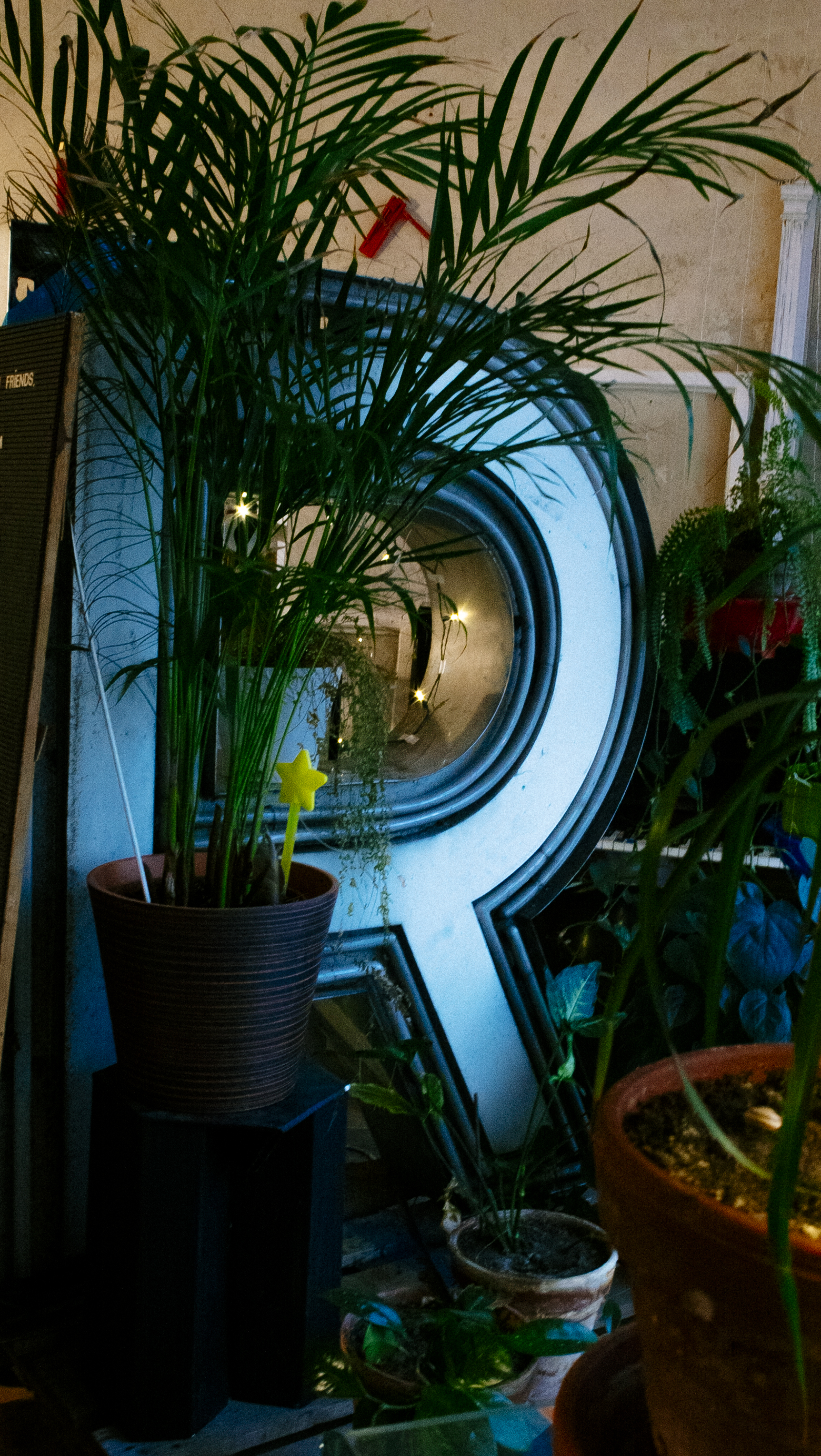
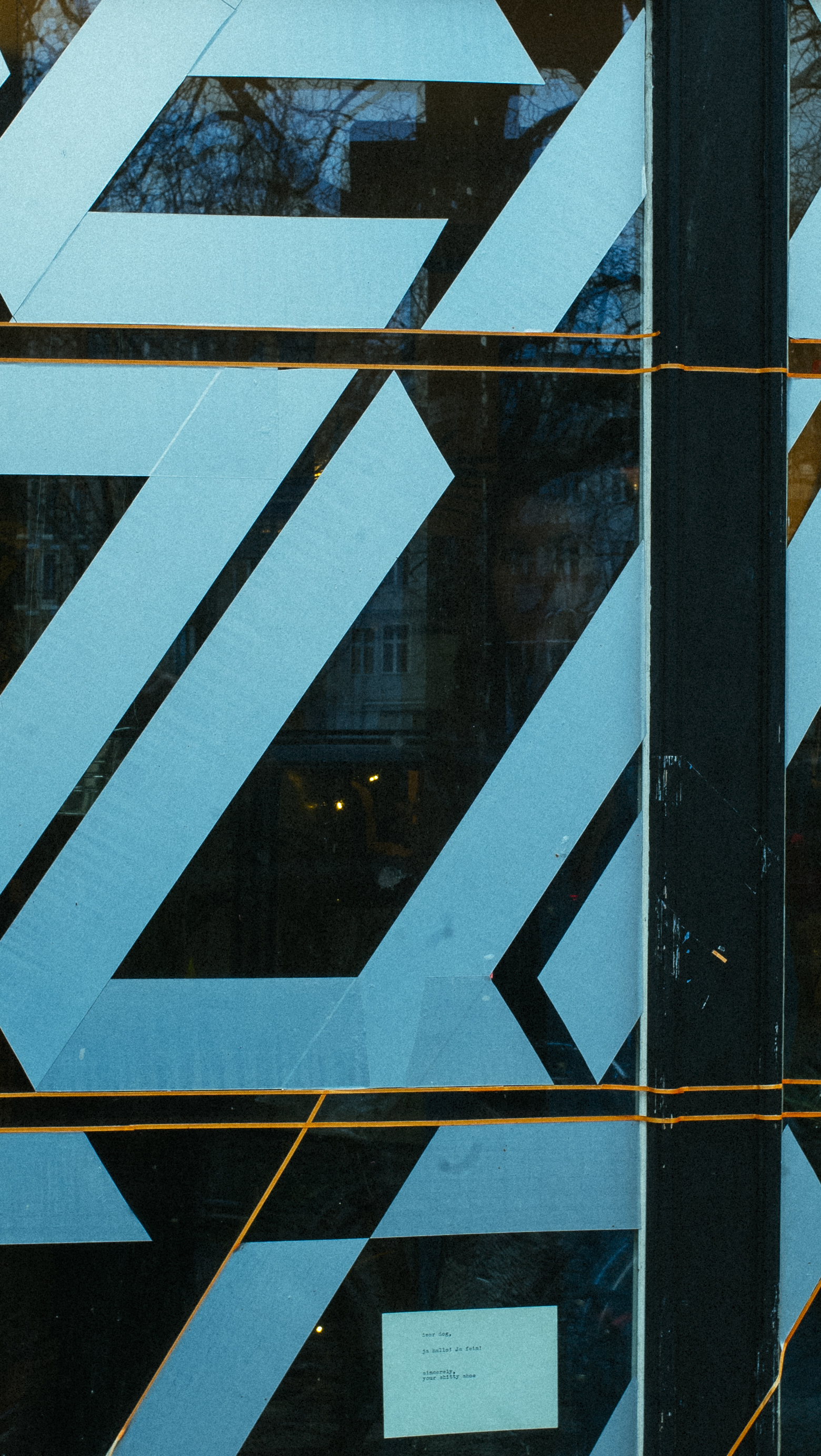
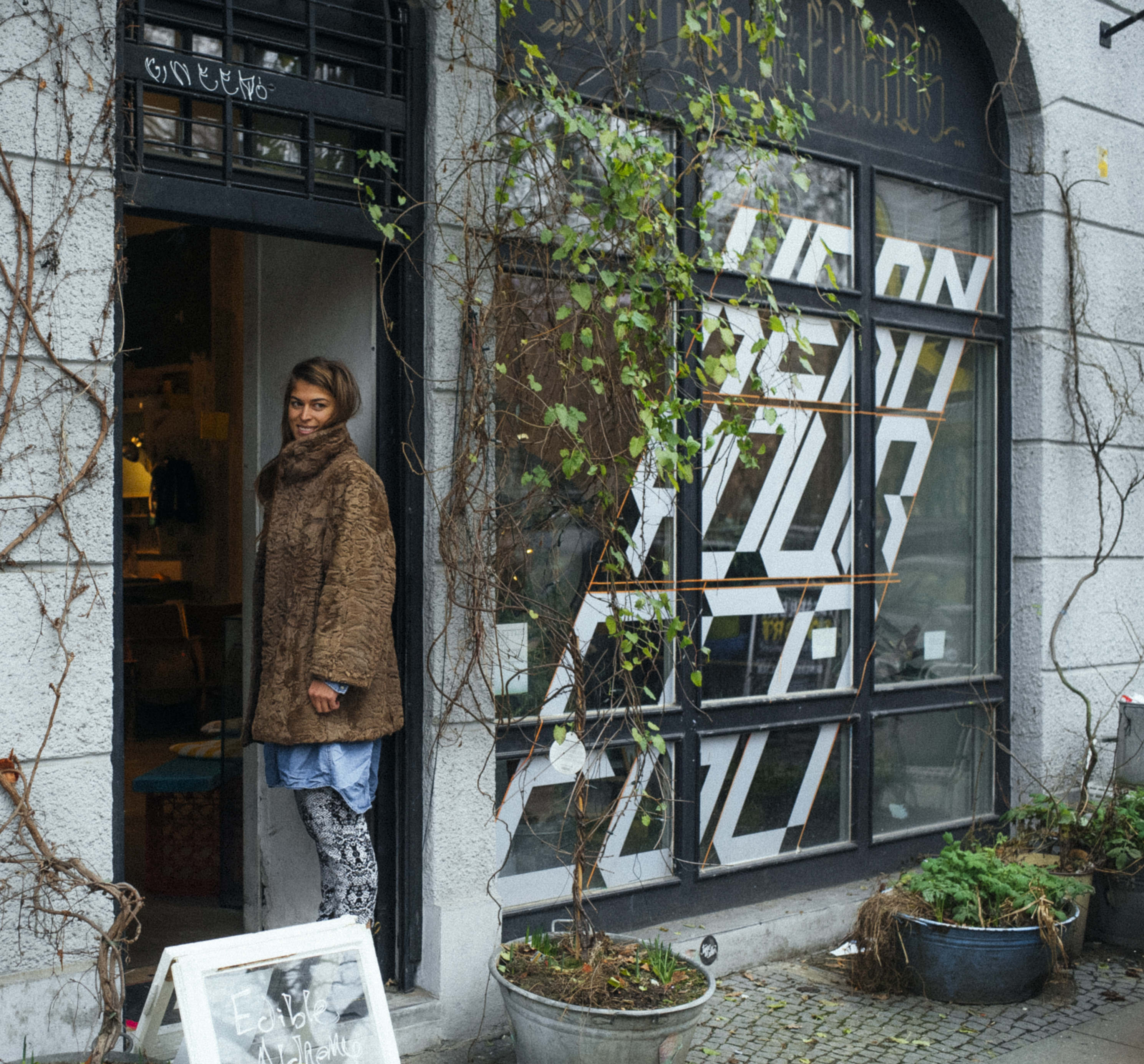
For more more information, inspiration, webinars, workshops and co. visit:
www.ediblealchemy.co
Text: Maia Frazier
Image: Daniel Eceolaza
www.ediblealchemy.co
Text: Maia Frazier
Image: Daniel Eceolaza
Probiotic restaurant recommendation in Berlin:
“Oak and Ice, a beautiful shop in Prenzlauer Berg. I trained the staff to make a golden kimchi and now they are making weekly batches, because they sell out super quickly. Really good kraut, they’re acing it!” - Alexis Goertz, Edible Alchemy
“Oak and Ice, a beautiful shop in Prenzlauer Berg. I trained the staff to make a golden kimchi and now they are making weekly batches, because they sell out super quickly. Really good kraut, they’re acing it!” - Alexis Goertz, Edible Alchemy